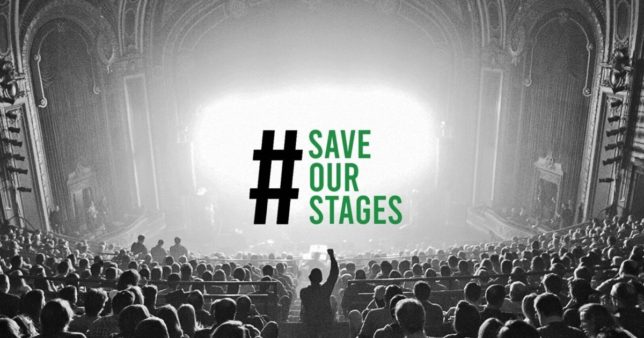Organization Trends
The Future of Live Music


In July, Sen. Amy Klobuchar (D-MN) and Sen. John Cornyn (R-TX) introduced the bipartisan Save Our Stages Act (S. 4258) to provide Small Business Administration grants to independent live music venues. The bill has been a major objective of two new nonprofits: the National Independent Venue Association (NIVA) and the National Independent Talent Organization (NITO). The aim of the bill is to provide financial support to the 90 percent of venue owners, bookers, and promoters in the music industry who claim they are at risk of closing permanently due to an estimated $9 billion loss in ticket sales.
This support would allow independent music venues to continue to pay for rent, utilities, mortgages, taxes, and other overhead costs, including meet local and federal social-distancing guidelines during the coronavirus pandemic. Klobachur states that the Paycheck Protection Program grants provided to independent music venues were not enough to support their future long-term financial health as she claims these venues “have always operated on a thin margin.”
Lobbying by the Music Industry
Both NIVA and NITO are recently formed nonprofits, created to help their music industry members weather the coronavirus pandemic. NIVA was formed in April “to fight for the survival of independent venues.” It grew out of the Independent Venue Week town hall that started shortly after the shutdowns began and now has more than 1,000 members. On June 11, 14 independent music talent agencies formed the National Independent Talent Organization to lobby the federal and state governments for economic assistance to help the independent music community survive and recover from the coronavirus shutdowns.
In June, popular artists Billie Eilish, Neil Young, Mavis Staples, Robert Plant, and André 3000 wrote a letter asking Congress to grant financial aid to these venues. They argue that these businesses play a key role in supporting upcoming bands and artists in the music industry. Moreover, Klobachur has stated that many independent venues such as First Avenue in Minneapolis, the venue where Prince famously performed in the beginning of his career, later become local tourist attractions that continue to bring in revenue due to their famous history.
Slow Reopening
However, while the Save Our Stages Act would provide immediate financial aid to keep independent music venues afloat, whether these businesses would be able to bring in enough revenue in the long run is questionable. Even with the right precautions, performers and business owners have voiced concerns over the viability of hosting music events during the coronavirus pandemic. In Iowa, outdoor music venues were permitted to host events as early as June, but even with financial support from the Save Our Stages Act, it will take months for agents to organize the infrastructure and tours needed to bring in revenue, according to Tobi Parks, co-owner of local independent music venue xBk.
Artists such as Brian Johannesen, Iowa singer and booking agent, argue that even with the option to perform or schedule shows at music venues, they plan to decline due to ongoing public health concerns. Johannesen states, “I won’t be playing at any shows until I feel like people can relax and actually enjoy the show without flinching at every cough.”
Public Health Risk
While larger venues and artists have attempted to host concerts during the coronavirus pandemic, public health experts such as Dr. Danielle Ompad, an associate professor of epidemiology specializing in infectious diseases at New York University’s School of Global Public Health, argues that hosting such events is an unnecessary risk to public health without the widespread distribution of a coronavirus vaccine: “Ideally we’d need a vaccine that was effective and the epidemic curve to go way down for live music to return to normal.” Ompad argues that even with extra precautions such as hand sanitizer, masks, and temperature checks open music venues presents an unnecessary risk to public health safety because audience members may be asymptomatic.
What Next
It is remarkable that two nonprofits less than a year old have succeeding in having bipartisan legislation introduced in the U.S. Senate so quickly. Yet the legislation raises larger questions beyond the music industry: While independent music venues serve as a cornerstone of cultural and social attractions across the United States, should the federal government (i.e., the U.S. taxpayer) financially support their operation and opening? Would federal funding unwisely increase the risks to public health? And should independent music venues be a federal priority or should federal funding go to other priorities?



